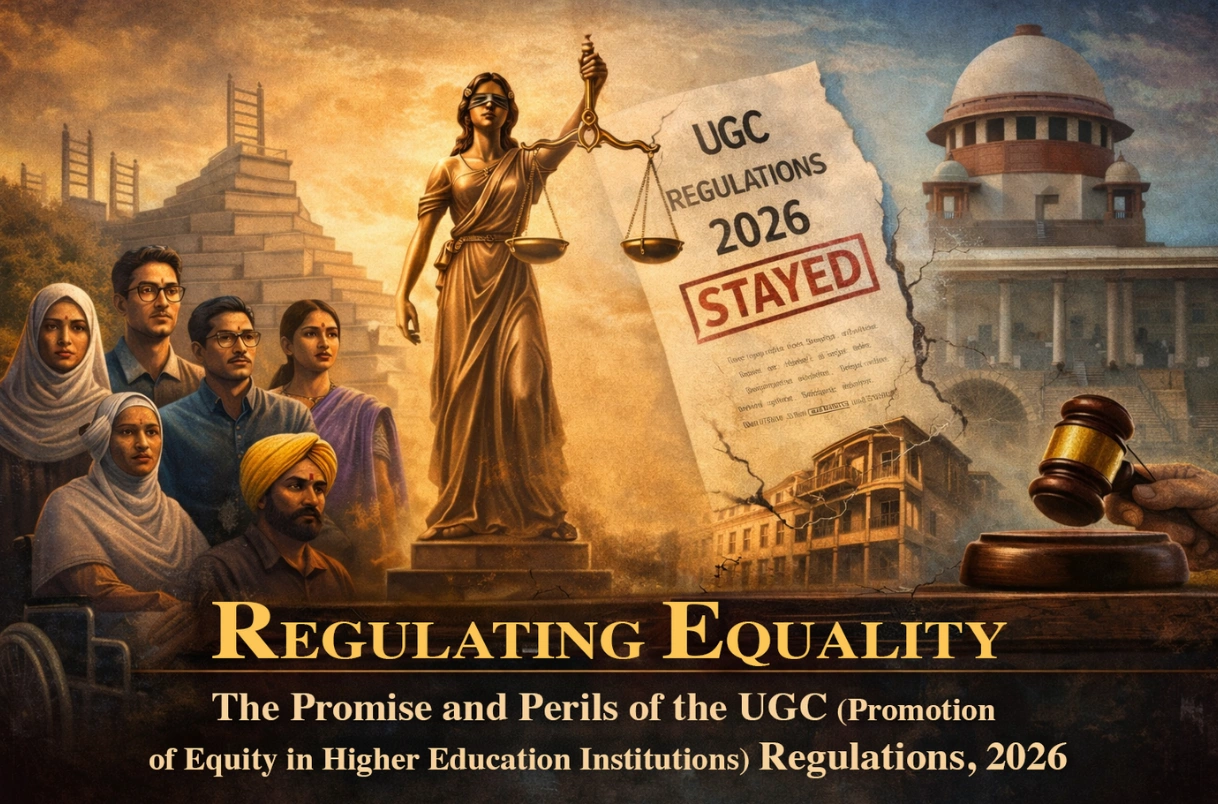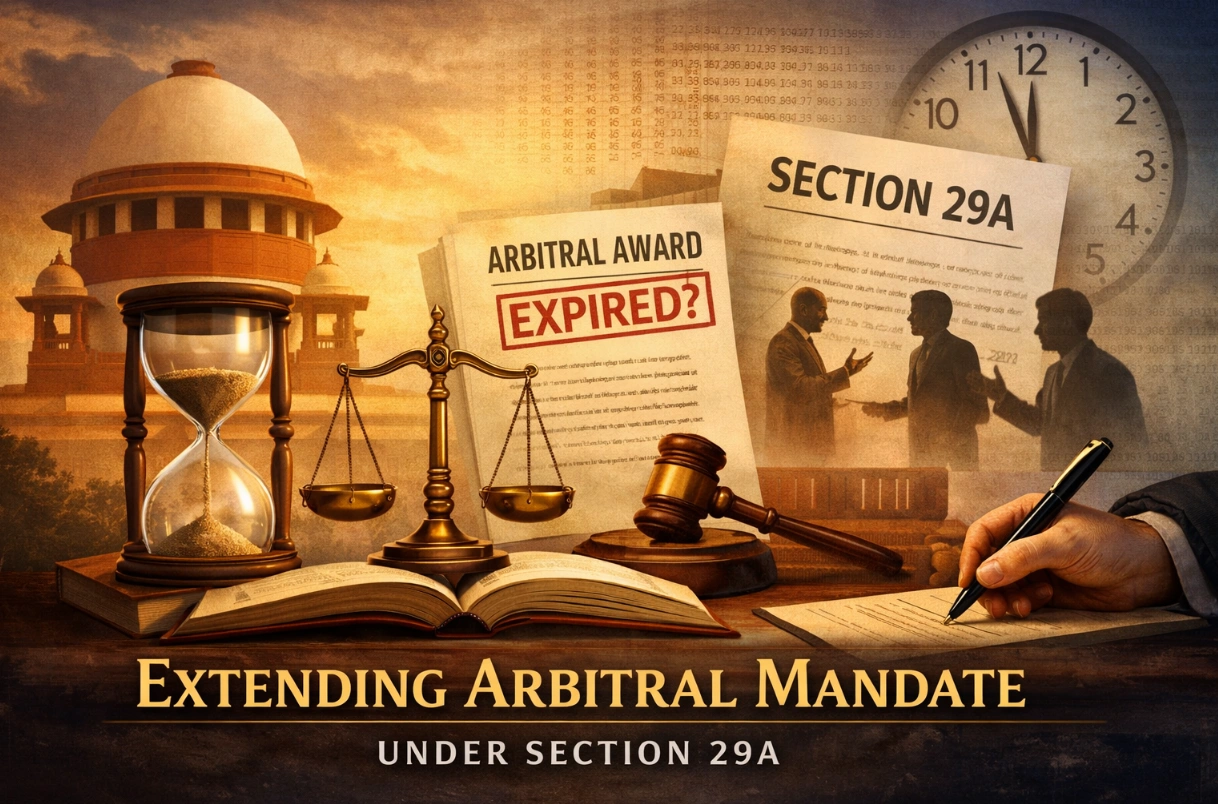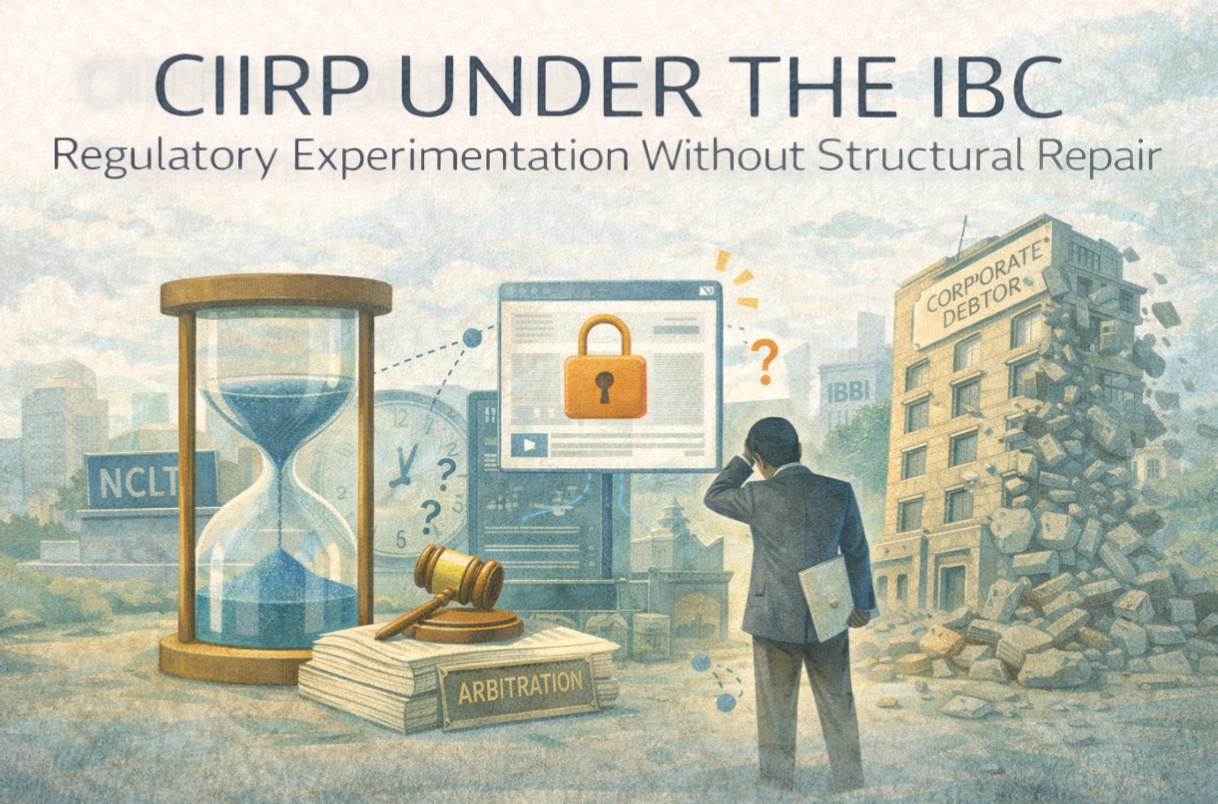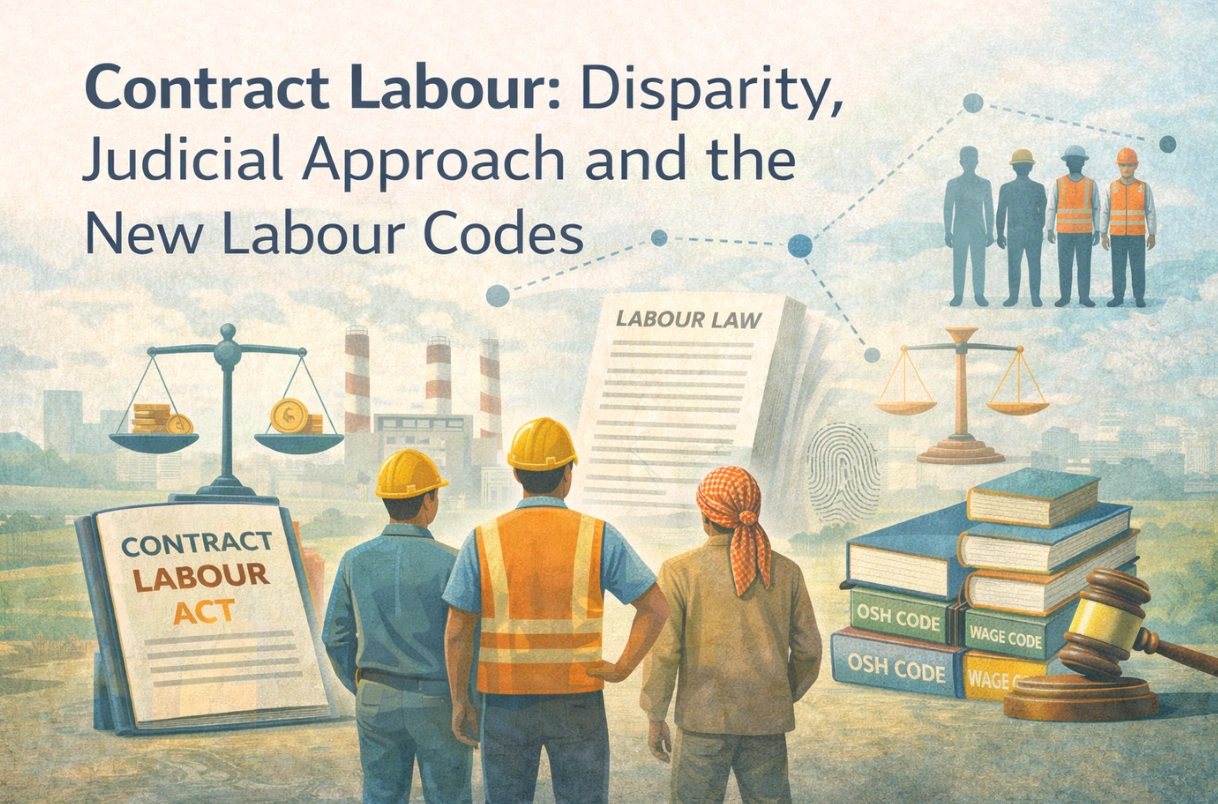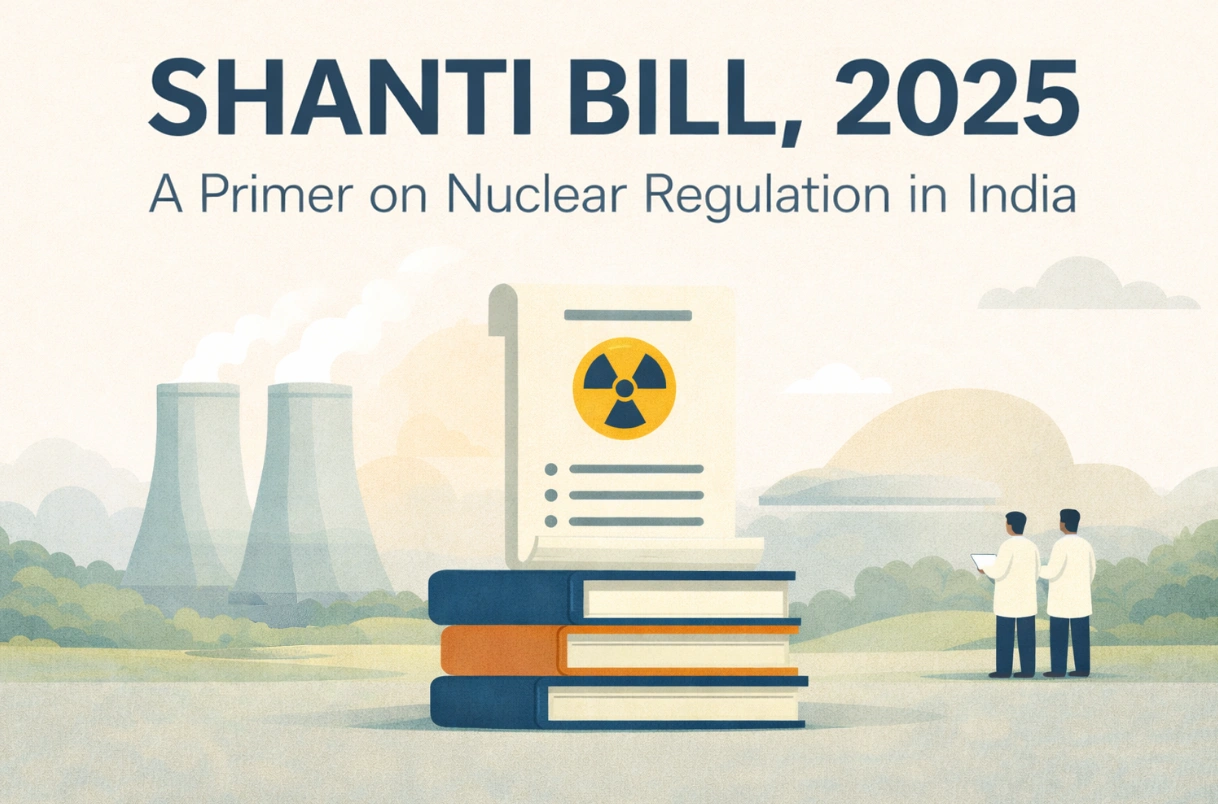READ OUR INSIGHTFUL ARTICLES
Regulating Equality: The Promise and Perils of the UGC (Promotion of Equity in Higher Education Institutions) Regulations, 2026
The UGC (Promotion of Equity in Higher Education Institutions) Regulations, 2026 shift equity from advisory guidance to binding obligation. With enhanced institutional accountability and enforcement powers, the framework faces constitutional scrutiny as the Supreme Court examines its balance between substantive equality and institutional autonomy.
TIME-BARRED OR TIME-EXTENDED: SUPREME COURT ON EXTENDING ARBITRAL MANDATE UNDER SECTION 29A OF THE ARBITRATION AND CONCILIATION ACT, 1996
The Supreme Court clarifies that courts may extend an arbitral tribunal’s mandate under Section 29A even after expiry and even after an award is delivered. In Velusamy, the Court adopts a purposive interpretation, balancing procedural timelines with the objective of preserving arbitration outcomes.
CIIRP UNDER THE IBC: REGULATORY EXPERIMENTATION WITHOUT STRUCTURAL REPAIR
The proposed Creditor-Initiated Insolvency Resolution Process (CIIRP) seeks to make insolvency faster and less litigation-driven. But without addressing structural issues like corporate debtor non-cooperation and documentation gaps, regulatory experimentation may risk repeating the same delays it aims to cure.
Intention as the Cornerstone: Determining the Existence of an Arbitration Agreement under Indian Law
Arbitration rests on consent, not labels. This article examines how Indian courts determine the existence of arbitration agreements, focusing on party intention, judicial tests, and recent Supreme Court rulings that separate binding arbitration from negotiation, expert determination, and internal dispute mechanisms.
Fiscal Delegation, Judicial Discipline, and the Rule of Law: Insights from Adani Power Ltd. v. Union of India
The Supreme Court’s decision in Adani Power Ltd. v. Union of India reaffirms constitutional limits on taxation, holding that customs duty cannot be imposed through executive notifications without statutory authority, and underscoring judicial discipline, fiscal restraint, and the binding force of precedent.
Contract Labour: Disparity, Judicial Approach and the New Labour Codes
India’s growing dependence on contract labour has reshaped workplace realities. With the OSH Code and Wage Code now in force, the legal framework seeks to address long-standing disparities, regulate contractors, and rebalance the rights, wages, and working conditions of contract workers.
Borrower Privacy in Digital Lending: RBI’s 2025 Directions and Judicial Scrutiny
Digital lending has made credit faster and easier, but it has also raised serious concerns around borrower privacy, consent, and data misuse. This article examines RBI’s Digital Lending Directions, 2025 and the emerging judicial scrutiny shaping data protection in India’s fintech ecosystem.
Examining the Legal and Regulatory Basis for FGD in Coal-Based Thermal Power Plants
India’s FGD mandate has evolved from a uniform environmental requirement to a differentiated, location-based framework. This article examines the legal basis of SO₂ norms, their interaction with electricity tariff law, and how the 2025 regulatory recalibration reshapes compliance, cost recovery, and consumer interest.
Indigo fiasco in light of DGCA Regulations
IndiGo’s mass cancellations were not a one-off disruption but a compliance failure triggered by stricter DGCA fatigue rules. This analysis examines what went wrong, how regulators responded, and why safety norms cannot bend to business models.
SHANTI Bill, 2025: A Primer on Nuclear Regulation in India
The SHANTI Bill, 2025 proposes a unified legal framework for nuclear energy in India, replacing legacy laws and enabling regulated private participation, strengthened safety oversight, and clearer liability norms, while retaining strong governmental control over sensitive and strategic nuclear activities.
